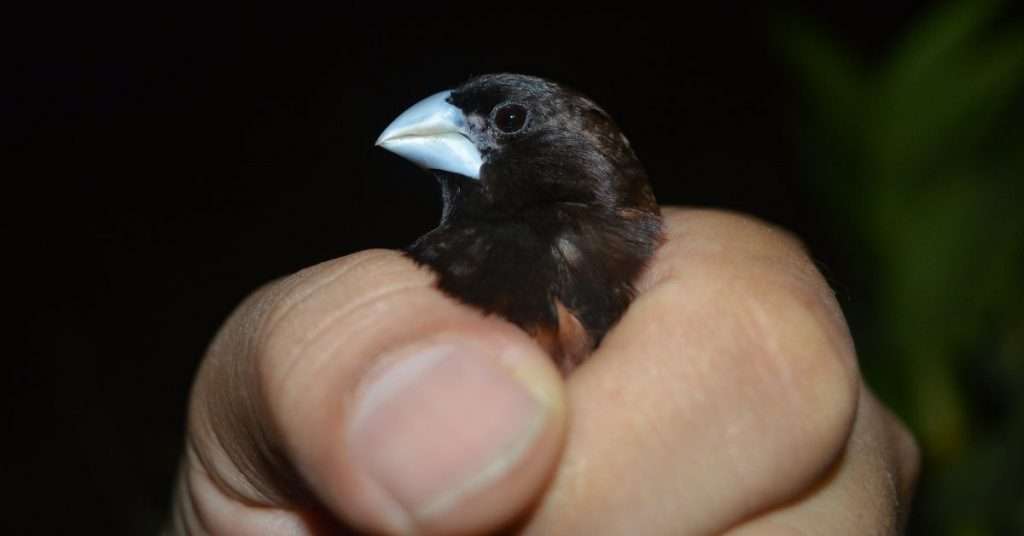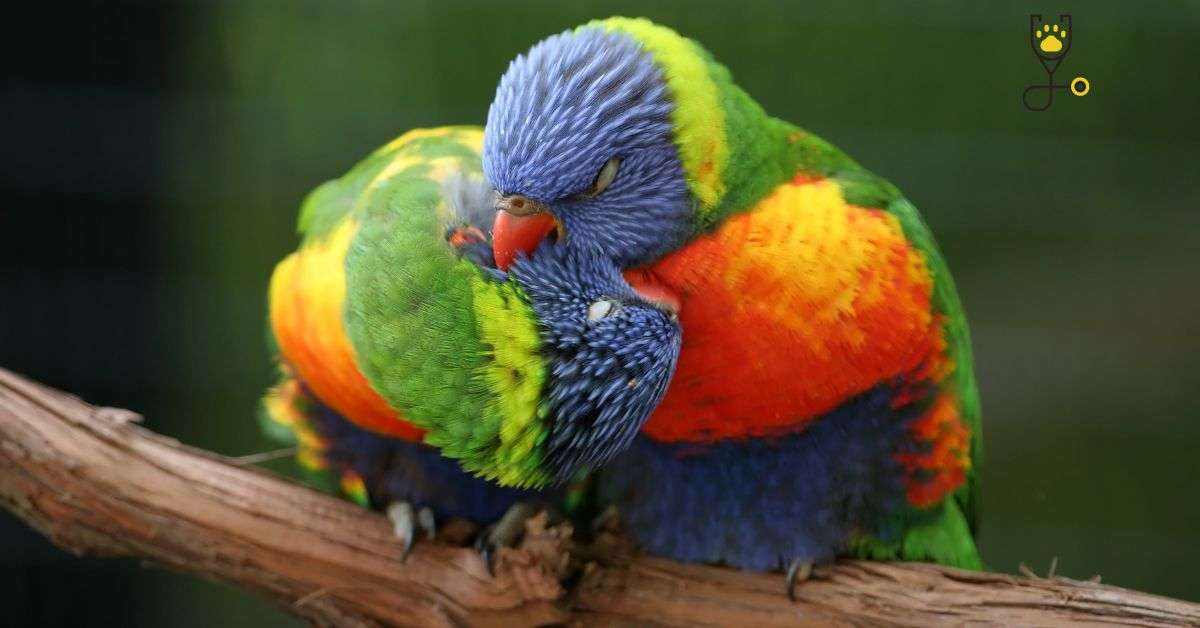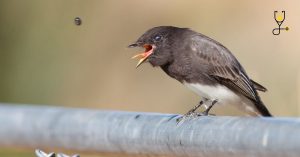Although lovebirds are known for being generally hardy, they can succumb to illnesses just like any other bird. If you suspect that your lovebird is unwell, it’s important to know the signs and symptoms of common lovebird diseases so that you can provide the best possible care for your sick bird.
In this blog post, we’ll outline How To Care For Sick LoveBirds and some of the most common health problems seen in lovebirds and offer tips on how to help your bird recover.
Read More: How to Get Wild Birds Like Blue Tits to Nest in the Garden

Is Your Lovebird Sick?
As any bird lover knows, lovebirds are small, brightly-colored parrots that are native to Africa. These birds are very social creatures and form strong bonds with their mates. However, lovebirds are also prey birds, which means that their instincts may cause them to hide illnesses.
As a result, it can be difficult to tell when a lovebird is unwell. There are a few signs, however, that may indicate that your lovebird is not feeling well.
Symptoms of Illness in Lovebirds
- Fluffed up feathers
- Disheveled feathers
- Loss of appetite
- Lethargy
- Sitting at the bottom of the cage
- Drooping wings
- Watery eyes or discharge from the nose
- Breathing difficulties
- Aggressive
- Sneezing
- Fever
- Sleeping more
- Inactivity
If you notice any of these symptoms in your lovebird, it’s important to take him to a veterinarian as soon as possible. Early diagnosis and treatment are crucial for sick birds.
Learn More: Bathing Tips For Lovebirds (Best Tips For Lovebirds 2022)
Respiratory Problems in Lovebirds
Respiratory problems are common in small birds, and lovebirds are no exception. If you notice any of the following symptoms in your lovebird, it is important to take them to the vet immediately:
- sneezing
- runny nose
- wheezing
- coughing
In addition to these respiratory symptoms, you may also notice that your lovebird is less active than usual, has a decreased appetite, or is fluffed up more than usual. If your lovebird is exhibiting any of these symptoms, it is important to seek veterinary care as soon as possible.
Learn More: How I Gained My Lovebird’s Trust

Steps to Care for Sick Lovebirds (at Home)
If you are unable to take your lovebird to the vet right away, there are a few things that you can do at home to help them feel better.
First, make sure that your bird has access to fresh water at all times. Sick birds often don’t drink as much water as they should, so it’s important to offer water frequently. You can also try adding some fruit or vegetables to their water to give them extra nutrients.
Next, give your bird a warm bath. This will help loosen any congestion and make it easier for them to breathe. Be sure to use warm water, not hot, and avoid getting water in your bird’s nostrils.
Finally, make sure that your bird is getting enough rest. Provide a quiet, dark place for them to sleep and avoid handling them more than necessary.
With proper care, most lovebirds will make a full recovery from illness.
Learn more about bird health issues and tips to prevent them.
How To Hold Your Lovebird
Lovebirds are small, delicate birds, so it’s important to handle them carefully. When picking up your bird, use both hands to support their body and wings. Gently scoop them up from underneath and bring them close to your body. Avoid holding them by their feet, wings, or tail, as this can cause injury.
If you need to hold your bird for an extended period of time, you can make a makeshift perch by fashioning a loop out of string or tape and attaching it to your clothing. This will give your bird a place to grip while keeping them close to you.
When handling your lovebird, always remember to be gentle and careful. With proper care, you can keep your bird healthy and happy for many years to come.

Administering The Antibiotic To Your Lovebirds
If your lovebird has been prescribed an antibiotic, it is important to follow your veterinarian’s instructions carefully. Most antibiotics are given orally, either in the form of a liquid or a powder that can be mixed with water.
Tips for giving antibiotics
To give your bird the medication, you will need to use a syringe or eye dropper. Draw up the correct amount of liquid and gently insert the tip into your bird’s mouth. Once the medication is in their mouth, allow them to swallow on their own. Do not force them to drink or swallow the medication.
If your bird is resistant to taking the medication orally, you may need to give it to them through injection. This should only be done by a qualified veterinarian.
It is important to finish the entire course of antibiotics, even if your bird is feeling better. Stopping the medication too early can cause the infection to come back.
If you have any questions or concerns about giving your bird medication, be sure to speak with your veterinarian.
Read: How To Make A Budgie Live Longer
Monitoring Your Bird’s Progress
Once you start administering medication, it is important to closely monitor your bird’s progress. Keep a close eye on their appetite, energy level, and respiratory symptoms. If you notice any improvements, great! However, if their condition worsens, be sure to contact your veterinarian right away.
In most cases, lovebirds will start to feel better within a few days of starting treatment. However, some birds may take longer to recover. With proper care and treatment, most lovebirds will make a full recovery.
As a general rule, it is always best to consult with a veterinary medical professional before making any decisions about your pet’s health. This article is accurate and true to the best of the author’s knowledge, but it should not be used as a substitute for diagnosis, prognosis, treatment, prescription, or formal and individualized advice from a veterinary medical professional.








